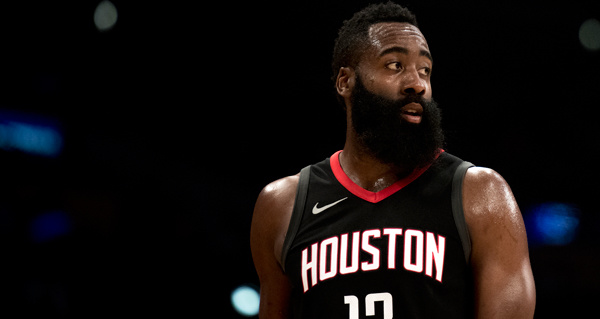It got something like close there, for a few minutes in the middle of the third quarter, and you could hear Mike Breen getting ready to juice the raspy glee in his voice, but it never really got close-close on Monday night, air rippling as if from the mouth of a freshly opened seltzer can. Jaylen Brown attacked the rim; LeBron James was loose with the ball. Anyway, the Cavs cleaned it up in time—not just in time, but with a degree of comfort. They had erected for themselves a broad margin for error, and used some of it. A lead of fifteen became seven, and then eleven, thirteen. It ended at nine: 111-102. All the gripping tension of idly thinking, while you’re on the bus stalled in traffic for a bit, that you might be late for the movie, and arriving at your seat before the AMC has even brought the lights down for previews.
These Conference Finals have been, while not wholly uncompetitive in a macro sense, dull on a game-by-game basis. This shouldn’t be happening, given that these teams are more or less evenly matched—the Warriors are historically great and the Rockets are a smidgen less great; the Cavs and Celtics are both pretty good if obviously flawed—and so maybe it’s lousy luck that we’re three contests into one series and four into another without yet having gotten to watch one that ended tensely. God threw the dice off the table seven times in a row; it happens to the best of us.
Perhaps the makeups of the squads are to blame, too. The Warriors are one of the best teams ever assembled, so it makes sense that they can run anybody off the floor on a given night. The Rockets, even by modern NBA standards, heave an absurd amount of threes, and when an inordinate number of them splash down, they’re almost impossible to keep up with. The Cavs have LeBron—who’s capable and in these playoffs more or less expected to uncork forty-point, double-digit-assist performances—and also a habit of not seeming particularly interested in playing basketball for entire quarters at a time. When they show up for forty-eight minutes, they can pulverize the underpowered Celtics. When they don’t, they are wheat to Brad Stevens’s locusts, his collective of indefatigable, high-executing randos who all know how to scram out of bad switches and find the shooter slowly rotating defenses won’t get to.
Analysis-as-sigh: we’ll probably get a good game eventually. (Though I’d put more of my trust in Game 5 in Boston than Game 4 in Oakland.) It’s disappointing, to feel yourself slipping into that logy gear that accompanies blowouts, in February, and even moreso during the opening rounds of the playoffs. You showed up and all you got was athletic et cetera. But you get over it quickly. There are other, possibly more competitive games on the slate. Jazz-Thunder could be the perfect medicine for the dyspepsia brought on by Sixers-Heat. But the days of plenty are over at this point in the calendar. Warriors-Rockets and Cavs-Celtics is all we got. Hell, sometimes we don’t even have that: fully blank, hoops-less spans installed for the sake of travel and rest and making sure, for some reason, the NBA Finals start exactly when the NBA announced they would months ago. It’s a long pre-pitch routine for a splitter in the dirt.
Adding to the aggravation: is anybody excited for the championship tilt? Rockets vs. Cavs might go a gentleman’s six, and that’s the closest Finals matchup I can fathom. The Western Conference teams are quite a bit better, and these series feel like the culmination of two parallel, unequal tournaments. One winner gets a ring. The other lands itself in the unhighlighted section of a Wikipedia table.
The NBA playoffs don’t need to redeem or justify its regular season, because its regular season is fine on its own terms. I like long walks to nowhere—a hot dog stand, by accident, three miles from my apartment—and I like going to the zoo on purpose, for different reasons. That said, an anxiety inevitably sets in when we’re down to, not just few remaining games before the morass of summer is all that’s before us and we have to talk ourselves into being actually really interested in who the Orlando Magic are picking at six, but games that are supposed to matter more than other ones. Some of that is down to our lizard brains getting suckered by marketing—the pomp and circumstance of postseason broadcasts, Black Thought doing slam poetry about Steph Curry in a promo or whatever—and some of it is real because, duh, we care who wins and who’s the best and even if they’re about to get whooped by the Warriors or Rockets, Cavs and Celtics fans hate each other enough to care about who beats whom. It would be nice if they stopped, one at a time, trading impressive efforts, and played well simultaneously.
There’s still hope. The Cavs and Warriors, in their epic 2016 Finals meeting, played only one truly close contest: Game 7. There was suspense before that, at least the odd lead change, but the finale made the experience worth it, drew some lopsided scuffles into its orbit and arranged them into a beautiful order. That’s what we want out of late postseason series—for them, perhaps only in retrospect, to have some grand meaning and rhythm in the end. And given that neither series has yet ended, there remains the chance that we’re not merely watching dueling landslide victories as the season winds down, but the tedious beginning and middle of some ultimately spectacular whole.



